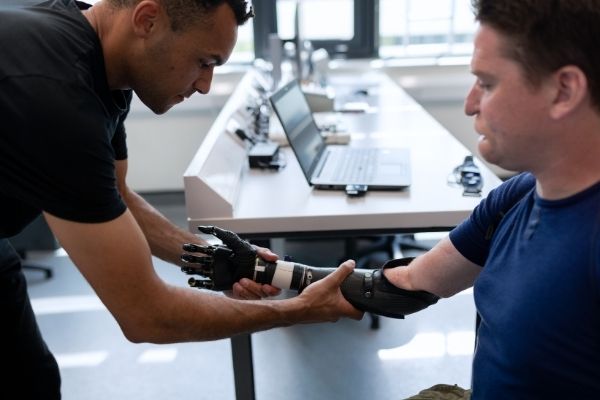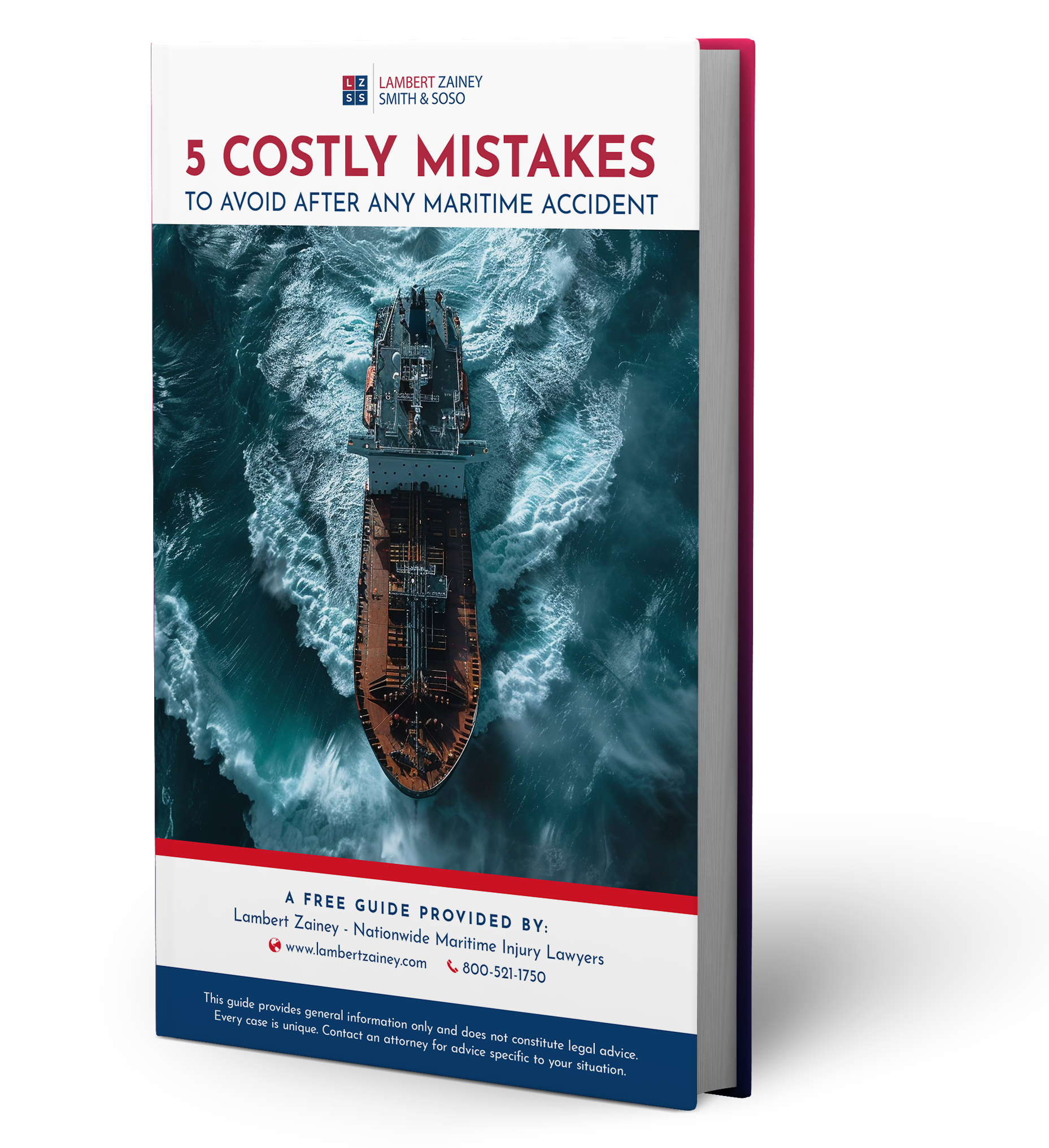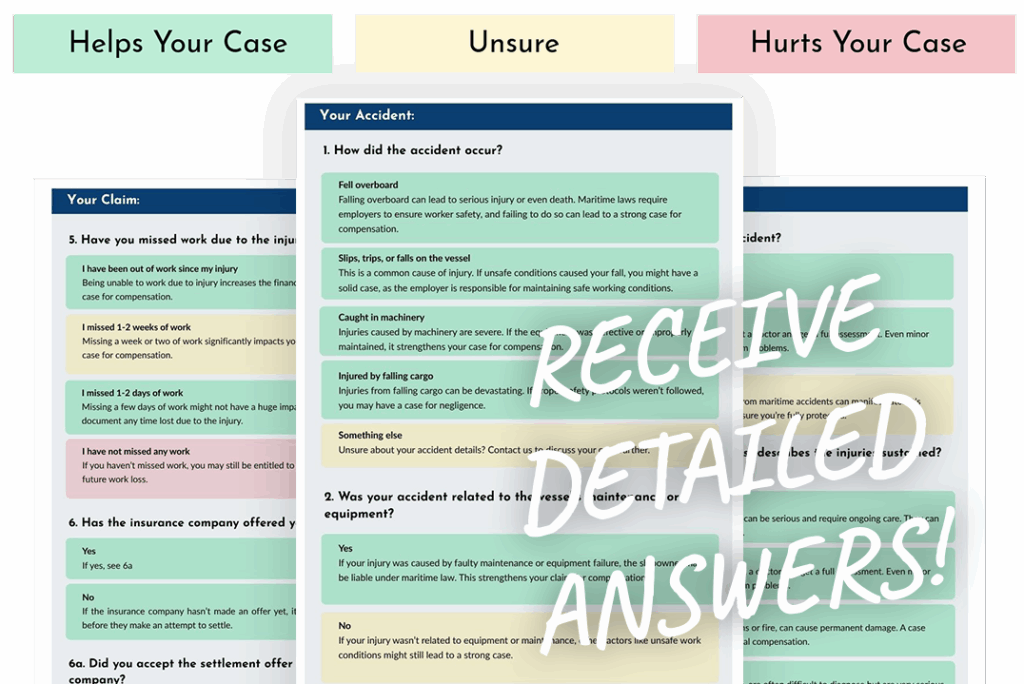We don’t have to tell you that maritime work is full of risks. When employers and employees ignore proper safety rules and practices, serious accidents can occur that result in catastrophic injuries. Amputation injuries are one type of catastrophic injury that happens far too often.
Types of Maritime Amputation Injuries
Amputations are injuries that involve the total or partial loss of a limb such as a finger, hand, arm, leg, or toe. There are three types of amputation injuries:
Causes of Maritime and Offshore Amputations
There are many kinds of accidents that can result in an amputation injury, including:
However, one of the biggest causes of amputation injuries occurs when a limb gets caught in or struck by a piece of equipment, such as:
Keeping equipment in good working order, proper training, following the necessary safety rules and staying alert are a few of the ways in which amputations and other catastrophic maritime injuries can be avoided.
Damages Caused By Amputation Injuries
Most amputation injuries require immediate emergency medical treatment. In addition to the loss of a limb, injured persons can also suffer from severe blood loss and shock.

Surgery is usually required to treat a missing limb or to amputate a damaged one. Extensive physical therapy is usually required to help patients adapt to the loss of their limb or prosthetic. Depending on the type of accident, psychological therapy may be needed as well if the patient begins to show symptoms of PTSD.
It’s an understatement to say that an amputation is a serious accident. While missing limbs can be replaced by prosthetics, these devices don’t come anywhere close to providing the type of movement and articulation needed to perform the tasks most maritime work entails.
For many maritime workers, an amputation means an end to their careers. Few workers who undergo major amputation injuries are able to return to their former occupations.
Get Our FREE Guide to Protect Your Claim
What you do after an accident is critical. Insurance companies will try to get you to make mistakes that can hurt your claim. Our free guide can help you avoid these traps.
Download our complimentary guide: “5 Costly Mistakes to Avoid After Any Maritime Accident” to arm yourself with the knowledge you need to protect your rights.
Speak To a Maritime Accident Injury Lawyer about Your Amputation Injuries
If you’ve lost a limb in an on-the-job accident that resulted from the negligent actions of an employer or co-worker, the Jones Act and other maritime laws give you the right to seek compensation for the damages caused by your amputation injuries.
Lambert Zainey has been protecting the rights of injured dock workers, seamen and offshore workers for over 40 years. As top maritime injury law firms, we are dedicated to ensuring you get the total compensation you are due for your injuries. One of our recent successes includes a large settlement for a coverstacker whose hand was crushed by a barge cover.
Call the Lambert Firm at 800-521-1750 or contact us online to schedule a free consultation with an experienced maritime accident attorney. Lambert Zainey is based in New Orleans, but we represent injured clients nationwide.
We don’t have to tell you that maritime work is full of risks. When employers and employees ignore proper safety rules and practices, serious accidents can occur that result in catastrophic injuries. Amputation injuries are one type of catastrophic injury that happens far too often.
Types of Maritime Amputation Injuries
Amputations are injuries that involve the total or partial loss of a limb such as a finger, hand, arm, leg, or toe. There are three types of amputation injuries:
Causes of Maritime and Offshore Amputations
There are many kinds of accidents that can result in an amputation injury, including:
However, one of the biggest causes of amputation injuries occurs when a limb gets caught in or struck by a piece of equipment, such as:
Keeping equipment in good working order, proper training, following the necessary safety rules and staying alert are a few of the ways in which amputations and other catastrophic maritime injuries can be avoided.
Damages Caused By Amputation Injuries
Most amputation injuries require immediate emergency medical treatment. In addition to the loss of a limb, injured persons can also suffer from severe blood loss and shock.

Surgery is usually required to treat a missing limb or to amputate a damaged one. Extensive physical therapy is usually required to help patients adapt to the loss of their limb or prosthetic. Depending on the type of accident, psychological therapy may be needed as well if the patient begins to show symptoms of PTSD.
It’s an understatement to say that an amputation is a serious accident. While missing limbs can be replaced by prosthetics, these devices don’t come anywhere close to providing the type of movement and articulation needed to perform the tasks most maritime work entails.
For many maritime workers, an amputation means an end to their careers. Few workers who undergo major amputation injuries are able to return to their former occupations.
Get Our FREE Guide to Protect Your Claim
What you do after an accident is critical. Insurance companies will try to get you to make mistakes that can hurt your claim. Our free guide can help you avoid these traps.
Download our complimentary guide: “5 Costly Mistakes to Avoid After Any Maritime Accident” to arm yourself with the knowledge you need to protect your rights.
Speak To a Maritime Accident Injury Lawyer about Your Amputation Injuries
If you’ve lost a limb in an on-the-job accident that resulted from the negligent actions of an employer or co-worker, the Jones Act and other maritime laws give you the right to seek compensation for the damages caused by your amputation injuries.
Lambert Zainey has been protecting the rights of injured dock workers, seamen and offshore workers for over 40 years. As top maritime injury law firms, we are dedicated to ensuring you get the total compensation you are due for your injuries. One of our recent successes includes a large settlement for a coverstacker whose hand was crushed by a barge cover.
Call the Lambert Firm at 800-521-1750 or contact us online to schedule a free consultation with an experienced maritime accident attorney. Lambert Zainey is based in New Orleans, but we represent injured clients nationwide.









